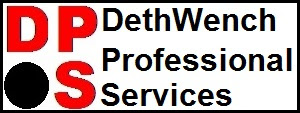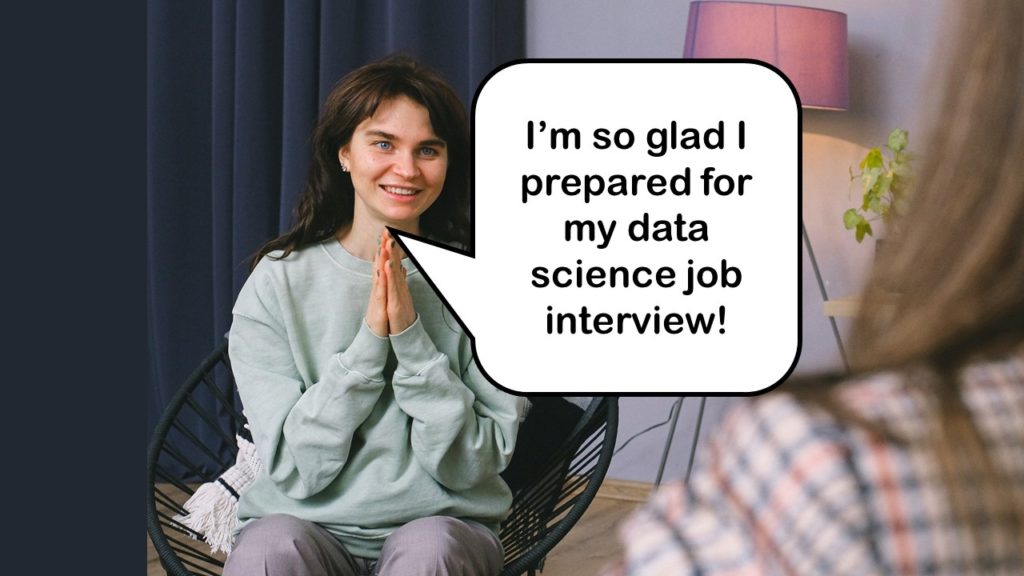Interview preparation for data science job positions is a topic that is covered by Wyatt Sharber in his article on job-seeking in the data science field. Sharber reviews the book, “Build a Career in Data Science” by Emily Robinson and Jacqueline Nolis that I admit I have not read (yet – it looks good, so I plan to do it in the near future). But on the basis of what Sharber said, I would strongly recommend that if you are interested in interview preparation for data science jobs, you read Chapter 7 of that book, which talks about the logistics of the various things they make you do when you interview for a data science position.
Why Interview Preparation for Data Science Job-seeking is So Important
Even by Sharber’s summary of that chapter, we can see that the process of getting a data science job often involves a lot of interviewing. I remember interviewing for a data science job at Blue Cross/Blue Shield in 2011. It was a daylong interview, where I had one-on-one conversations with at least six different people at different levels of the organization. (Spoiler: I was offered the job but did not take it.)
My point of telling this little vignette is that regardless of the data science position, don’t be surprised if trying to get it involves a lot of interviews with different people. Therefore, you want to be ready for any topic or question – the way sports players are ready for interviews after a game. You just want to be ready for anything that comes at you from anyone. So I made this blog post to share what I do with my customers to get them “ready for anything” as part of interview preparation for data science job-seeking activities.
Tip #1: Make Sure You Have at Least One Project to Talk About Authentically
As a manager of a data warehouse or some other data project, I would interview people for data science jobs. The first main thing I was looking for was, “Is this person for real? Can they really do a data science project?” If I couldn’t answer, “Yes” by the end of the interview, they were not getting hired.
How I could tell the person was “for real” was if they “talked shop” – meaning they talked about working on a data project or for a data warehouse in a realistic and authentic way. They knew the terminology, but more than that, they could relate to the real issues that come up in data projects. Job candidates who talked confidently about the struggles they had with data and projects, and issues that came up – those are the people I would even consider in a job.
This is because many people are what I call “posers” in data science. They take programming courses and get degrees from fine colleges, but they can’t do projects, or get along with people on teams. So as a manager, if I don’t hear the interview candidate talking about doing projects or dealing with people on teams, I tend to think they are a poser, and not a real data scientist. So I do not consider them anymore for a job, because they will be a problem to integrate into the team.
How to Prevent Appearing as a Data Science Poser
If you have watched my video on how to do your data science journey, you will know that to love and get into data science, you actually have to love and get into a topic. It is through that topic you will do your data science. It is like a photographer who must fall in love with her subject to make good photographs.
This is why I encourage you to first pick a field, and then do data science projects in that field. Do them alone, do them with groups of people in your college (in class or outside), do them with professors, do them with colleagues, do them with your gaming friends, do them at hackathons on that theme – just do them. The more team data science you do in that field, the more you will be able to get to know data science in that field, and the more you will not sound like a poser.
As an example to my learners, I did this portfolio project in casinos in Massachusetts. This is because my friend who is a fintech data scientist and I want to do data science contracts for our casinos in Massachusetts where we live! (Spoiler: No matter how much I troll the Massachusetts Gaming Commission [MGC] to make a contract with us – two minority, women-owned businesses – they ignore us.)
I love being a casino customer in Massachusetts – but I didn’t really think at all about the business of casinos until I decided to troll the MGC for a contract. And before I did that, I realized that I wasn’t really ready for any sort of interview with the MGC, because I knew literally nothing about business issues casinos have.
This put me in a position similar to a jobseeker in a data science field they don’t know much about. I wanted to demonstrate to the MGC that I wasn’t just an epidemiologist who studies health and healthcare quality – I’m also a data scientist who can give business advice to casinos. So I did that portfolio project, and then I felt confident about what I could offer to do for Massachusetts casinos in data science that could improve their business. Now, if the MGC ever stops ignoring my friend and me and asks us for a consultant interview, I’m totally prepared with something to say!
Issue with Portfolio Projects
Even after I posted that example portfolio project, some learners have told me that they agree with me, they want to do a project, but it is hard for them to do something like this on their own without guidance. They don’t know where to start. If that is the case, please contact me for a free consultation, and we’ll talk about the possibilities of me guiding you through a portfolio project.
Tip #2: Manage the Interview from the Bottom
Whether you are in a group interview or a one-on-one interview, your basic challenge is to listen to someone asking a question, and then provide an answer that satisfies everyone’s curiosity. So, whether your audience is one person or a group, you are essentially serving an audience with communication about yourself that they will use to evaluate you.
In a way – they are asking you questions, and your challenge is to respond with an advertisement for yourself without having it sound like an advertisement. Think about it in terms of a software. If I was SQL and I was applying for a data science job, and someone interviewing me asked me, “Are you good at statistics?” I’d say, “I admit I am not optimized for statistics. But I do means and standard deviations, and I am a necessary backend for most data warehouses where they do statistics.” So you see how I answer the question, but try to persuade the questioner that their priorities might not be in the right place for me?
One way to effectively sell yourself is to reframe the question when the questioner asks. Here are a few examples:
Notice how the response reframed the question. In the first example, the interviewee expanded the question by reframing it, so she could get her talking points in. In the second example, again, the question is reframed, and this reframing allows the interviewee to put a positive spin on the situation. Finally, in the third example, the response actually contradicts the question, again reframing the situation in a positive light.
Do these verbal tactics and gymnastics sound difficult? They are. That’s why my third tip is to practice!
Tip #3: Practice Making Succinct Answers to Questions
How do you practice making these quick answers to questions? Well, if you think about it, there are only so many questions they could ask – especially if you reframe them into talking points like I talk about above. So when you see it that way, you just need to get a list of questions together, and practice answering them.
You might think it is a good idea to write out answers and practice saying them, but that’s not really a good idea. It’s better to get a list of questions, and then write just a few notes as answers. For example, if I was taking notes to answer the question in Example #2, I would make a list of things my boss has done to me to make me want to leave, such as preventing the publication of my scientific paper that he originally authorized, and barring me from hiring any staff on my data warehouse team. That way, no matter how the question comes up about my boss, I’m ready with talking points I want to get in. These are issues I want the future workplace to ask my supervisor about if they call him, so they can find out why he would do such things.
But how do I make sure when the question comes up, I do a good job answering it? I have to take those bulletpoints, have an actual person ask me the question, and then practice answering. It’s kind of like practicing a presentation, only it’s like you are practicing a bunch of little, tweet-sized presentations. Here are the characteristics you want in your answer:
So, not only do you have to anticipate questions and get talking points ready, you need to find someone who will act as an interviewer so you can practice. Yes, it is like sports – you really have to practice on the field. You need a real person challenging you with questions. It’s best to get a real data science manager to practice interviewing you. If you have a colleague or a professor who is very supportive of you, that person might be perfect, because they won’t be afraid to act hostile or challenge you in an interview.
As part of interview preparation for data science jobs, it is optimal to practice interviewing with someone who is good at it (like me), because they can roleplay very effectively. They can also break character and give you tips on how to improve your game. So if you want me to help you by doing a practice interview with you, please contact me by e-mail or on my LinkedIn profile, and we will set up a time to meet online. Also, make sure you subscribe to my YouTube channel, mainly because I hold livestreams, and you can show up and have me answer your questions in real time.
Updated January 19, 2022. Added livestream recording January 22, 2022.
Interview preparation for data science jobs can involve taking several simple, actionable steps to make yourself feel confident and ready to answer questions with ease. Read my blog post for my tips and tricks!



Excellent presentation!
Wonderful! I’m glad you enjoyed it! Thank you for attending.